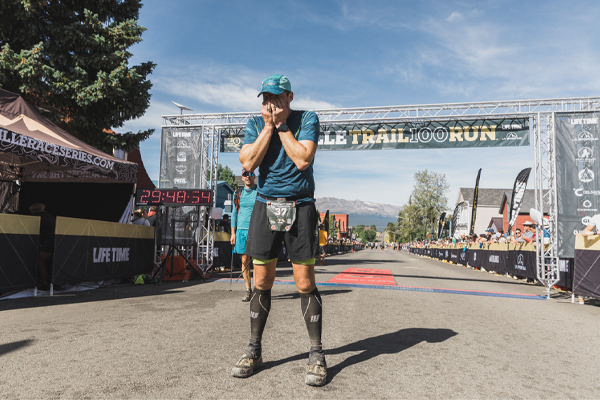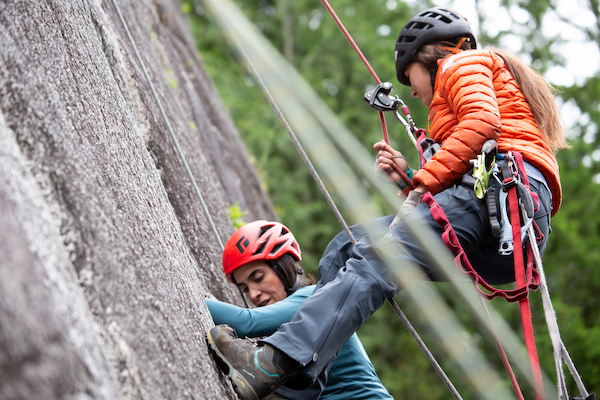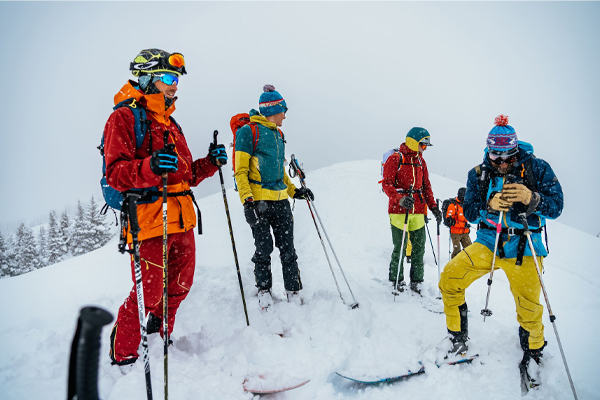Maria Dalzot - Tips for Eating on the Road

Read these travel tips to arrive at the start of your next race properly fueled, hydrated and healthy.
- - -
Traveling for competition is common, especially among runners, yet the unpredictability that comes with the new territory can put a dent in pre-race rituals by knocking an athlete off her nutrition game. The keys to eating well on the road: preparation and flexibility. Follow these tips to arrive at the starting line properly fueled, hydrated and healthy.
Drink Water (A Lot)
Bring a bottle for water and a thermos for tea or coffee, to have on the go. Don’t stress about hydrating on long car rides, just add a few more minutes to travel time to account for bathroom stops. Dehydration is often a cause of travel fatigue. Make sure to drink plenty of water before boarding a plane, and do not pass up the opportunity to hydrate when the beverage cart rolls by. Stress and drastic time changes while traveling can disrupt normal bowel movements so drinking a lot of water can help keep you regular. When in a country with questionable water safety, avoid all contact with potentially contaminated water. That includes brushing your teeth! Bring a water bottle with a squirt top just for brushing teeth.
Do Your Research
If you are eating out the night before a race, decide which restaurant you want to eat at before going out. Research menus online to ensure the food can be tailored to your pre-race needs. Don’t be afraid to ask the servers to have the chef prepare food the way you want it prepared. For example, if the salmon comes with a butter cream sauce, ask for it grilled or with the sauce on the side. Don’t want a side of mash potatoes weighing you down? Pick a different side- sub a salad instead. Chances are you are paying a pretty penny so make sure you get what you need. Make reservations so you can eat at a normal time; it’s best to avoid situations like eating dinner at 9pm the night before a race that starts at 6am, especially if you are used to eating dinner much earlier.
Prioritize Sleep
Bring your own pillow, sleep mask, earplugs, or calming music. Noisy neighbors, elevator doors or a jazz festival outside your hotel room might prevent you from getting the best sleep you can the night before a race. Leading up to a race, it is important to get quality sleep over the preceding days rather than counting on the night before to rest up. In case your sleep is affected by uncontrollable factors, take comfort in a study published in Aviation, Space, and Environmental Medicine that showed that performance was not affected when cyclers were deprived of sleep the night before a time trial. So, if denied a restful night’s sleep, try to stay calm and meditate on crossing the finish line.

Go Plain, Boring, and Simple Safe
When in a new place it can be tempting to try the local cuisine, but it is important to stick to your normal prerace meal plan as closely as possible, and leave the indulgences and cultural experimentation for post race celebration. If traveling abroad, language barriers can pose the threat of miscommunication so always err on the side of caution when ordering and making meal choices. Ask if you do not know what something is, and when in doubt, don’t eat it.
Pack Your Pantry
Although most countries will not allow you to bring in fresh produce, you can pack portable snacks like granola, bars, trail mix, nut butter packets, cereals, and crackers. Upon arrival, check to see if there is a fridge in the hotel room and find a grocery store where you can stock up on fresh produce and buy any perishable items you may need. Some races are in remote locations with only fast food and gas station cuisine. If traveling by car, pack a cooler with fresh veggies and bring a camping stove to cook dinner.
Breakfast of Champions
If you don’t know when, where or what your next meal will be, eat plenty first thing in the morning to fuel a busy day of travel. When traveling there will not always be food available to meet your dietary needs, but if you bring your own granola, cereal, and familiar snacks, you can make a sizeable breakfast by supplementing fruit and eggs from the breakfast buffet at most hotels. On the road, some athletes can get too concerned about eating the wrong foods or getting sick that they don’t eat enough. Always carry light food, like bars and fresh fruit, to avoid dips in blood sugar and energy.
Wishing you safe travels and healthy, happy trails!
Preview Photo: © Quinn Carrasco
Photo 1: © Tad Davis
- - -
ABOUT THE AUTHOR
 Maria Dalzot is a member of the La Sportiva Mountain Running® Team.
Maria Dalzot is a member of the La Sportiva Mountain Running® Team.
- - -








